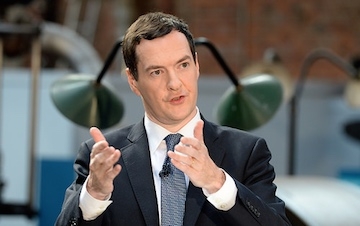In an unexpected move today in his Autumn Statement, Chancellor George Osborne said he would drop planned changes to tax credits which would have seen some lower income families lose £1,000 or more a year.
Mr Osborne had been expected to phase in the plans after they were rejected by the House of Lords but he said he would "go further" and drop the changes completely.
He said: "Because the government has announced today an improvement in the public finances, the simplest thing to do is not to phase these changes in, but to avoid them altogether. Tax credits are being phased out anyway as the government introduces universal credit.
"What that means is that the tax credit taper rate and thresholds remain unchanged. The income rise disregard will be £2,500. The government will propose no further changes to the universal credit taper, or to the work allowances beyond those that passed through Parliament. On the figures published today (Wednesday 25 November), the government will still achieve the £12 billion per year of welfare savings promise."
Mr Osborne said he did not need to make as many tax cuts as planned because of higher tax receipts although there would still be cuts in government departments.
Mr Osborne said he would still push ahead with the expected £12bn in welfare cuts.
The Chancellor's other major changes included:
• Encouraging private developers to build 400,000 new homes in England by the end of the decade
• Basic state pension to rise by £3.35 next year to £119.30 a week
• The new flat rate state pension to be £155.65 from next year
• Local authorities to be able to levy a new precept of up to 2% on council tax for 'social care' spending
• A fresh crackdown on tax avoidance to raise £5bn
• 3% extra stamp duty on buy-to-let builders and second home owners to discourage overseas speculators
On auto-enrolment, Mr Osborne said that there were now 5m enrolled and he announced a change to the phasing of payments (see other story).
There will also be help for small businesses with abolition of the Uniform Business Rate and a further 1 year extension on small business rate relief
with more powers for local authorities to manage business rates.
There was also more encouragement for apprenticeships with a levy to be put on larger firms to fund growth.

